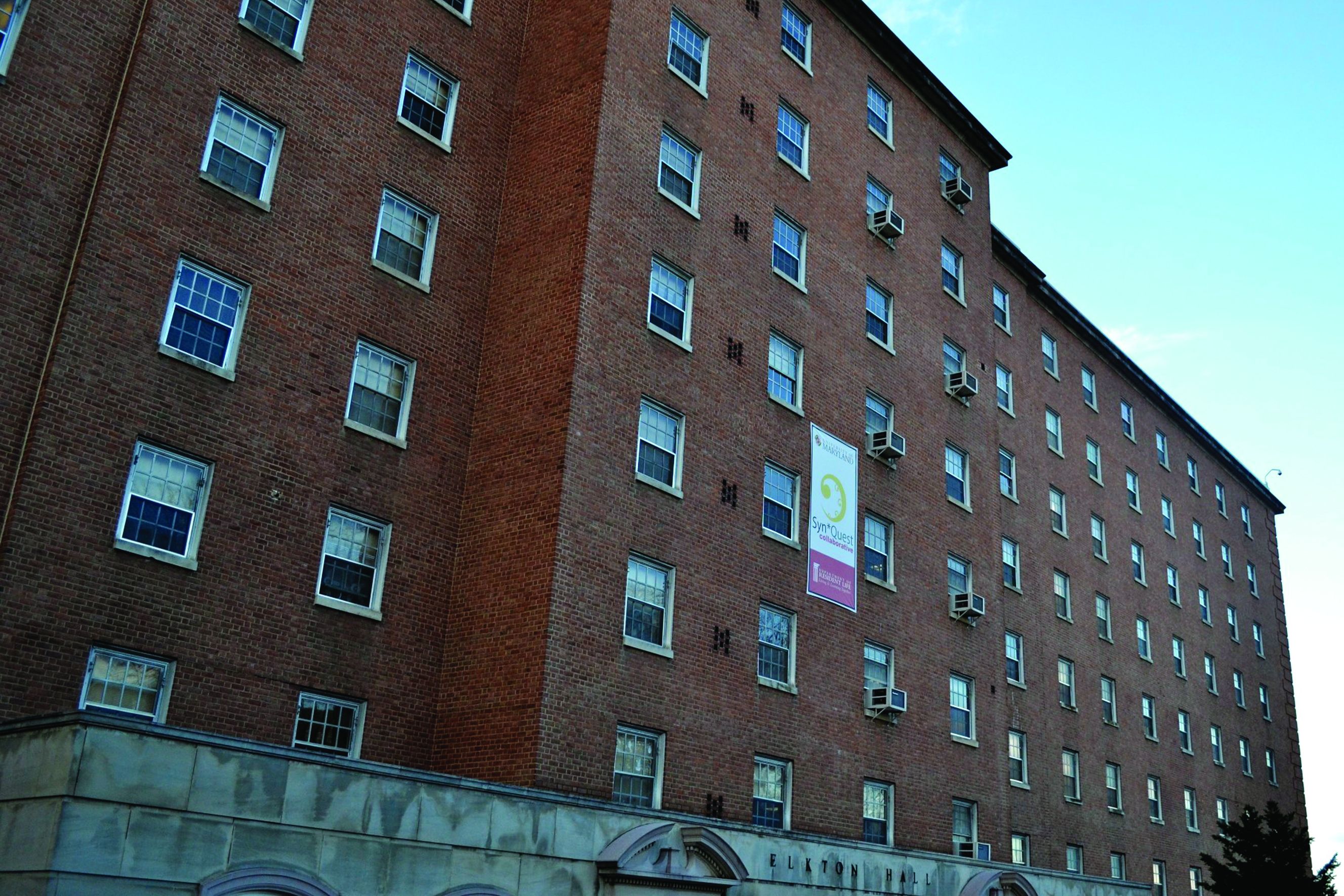By Alexander Dacy, Rachel Hunt and Carmen Molina Acosta
Staff writers
A report by an independent consulting firm released Thursday confirmed that the mold in the University of Maryland’s Elkton Hall proliferated due to air conditioning and circulation issues and recommended the school spend $90,000 to install a dehumidifier in every room.
The mold — which forced about 550 students to spend time in hotels across College Park — spread because of high humidity that the building’s air conditioning units couldn’t control, the report said. It was compiled by industrial hygiene consulting firms Building Dynamics, LLC and VERTEX Companies, Inc.
“The type of system put in Elkton does not control humidity. As a side effect of controlling temperature, it will pull some humidity out of the air, but really not very much,” said Ed Light, BDL’s founder and the Elkton study project manager. “There was real high humidity outside, and as it came into the building, it was not dropped out by the air conditioning system, so it just accumulated.”
[Read more: Mold kept these UMD students out of their sorority house for a month]
Residents of Elkton Hall began reporting mold earlier this year, and the building was evacuated so it could be cleaned. Students eventually said they found mold in at least nine other dorms and on-campus apartments.
Light said that the scope of BDL focused on Elkton since the problem was most widespread there, and reports in other buildings were relatively isolated.
Elkton’s structure made it conducive to mold growth, the report said. The building is “negatively pressurized by design,” meaning that it continuously circulates air already inside the building rather than bringing in outside air, the report said.
Elkton’s HVAC systems, which were installed in 2011, placed the building under even more negative pressure by exhausting more air than they supplied, the report added. Light said this patchy air flow was why the mold grew sporadically across the building.
“Those differences [in growth] are created by small differences in the surface temperature and the way air circulates,” he said.
[Video: “We have to uplift everything”: Students discuss Elkton Hall’s mold problem, evacuation]
The report concluded that the most cost-effective short-term solution would be to install a small dehumidifier in each room. The equipment itself would cost about $60,000 and the installation another $30,000.
The small units could be mounted to the wall and only cycle when relative humidity rose to 60 percent, well below the 80 percent threshold for mold growth, the report said.
“We are currently reviewing engineering recommendations from the external engineering professionals to determine the best approach to addressing these issues moving forward,” Resident Life wrote in its Mold Remediation Report FAQ.
This university contracted multiple third parties in October to review the situation following reports of mold outside Elkton. BDL and VERTEX oversaw these other contractors.
Resident Life will share a multi-year mold prevention strategy in late January and plans to enhance dehumidification in Denton and Elkton halls over the summer, the FAQ also said.
BDL conducted their report between September 25 and November 14. They found that the university’s remediation efforts were “consistent with mold remediation guidelines.”
However, after months spent doing the remediation, some housekeepers expressed concern that they were not provided the proper safety gear. About 30 of them complained to the union that represents university employees that they had gotten sick from the cleaning efforts.
Light said he only made “fine-tuning recommendations” to the contractors’ remediation process. He said he gave them a verified mold disinfectant to use when cleaning the rooms and switched off the HVAC units so the mold wouldn’t continue to spread while they were cleaning.
Residents who were displaced by the mold and their families were notified of the report’s findings, Resident Life spokeswoman Tracy Kiras said in an email.
The mold remediation inspections were completed on Oct. 10 after all affected dorms and apartments had been evaluated and Elkton Hall students were relocated back to their rooms, according to a statement on Resident Life’s website.
Any new reports will now be handled on a case-by-case basis by Resident Facilities, the update also read.



